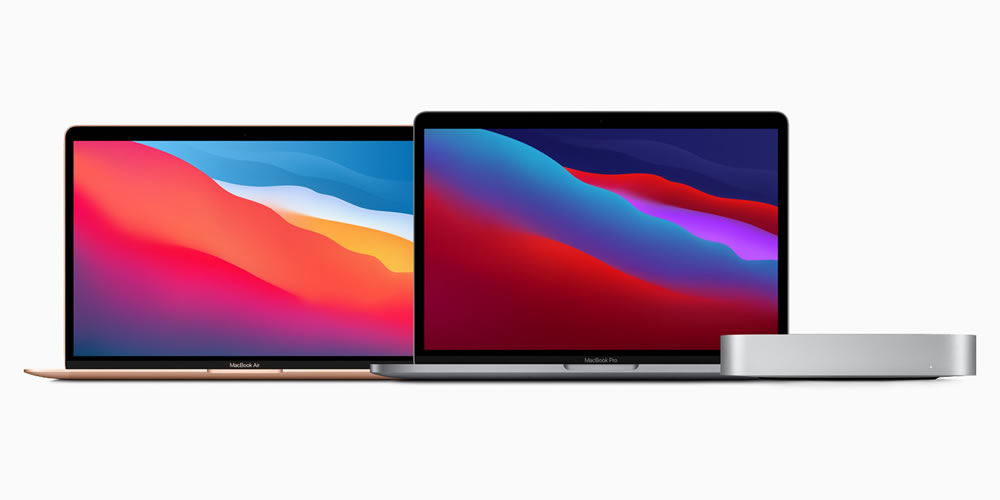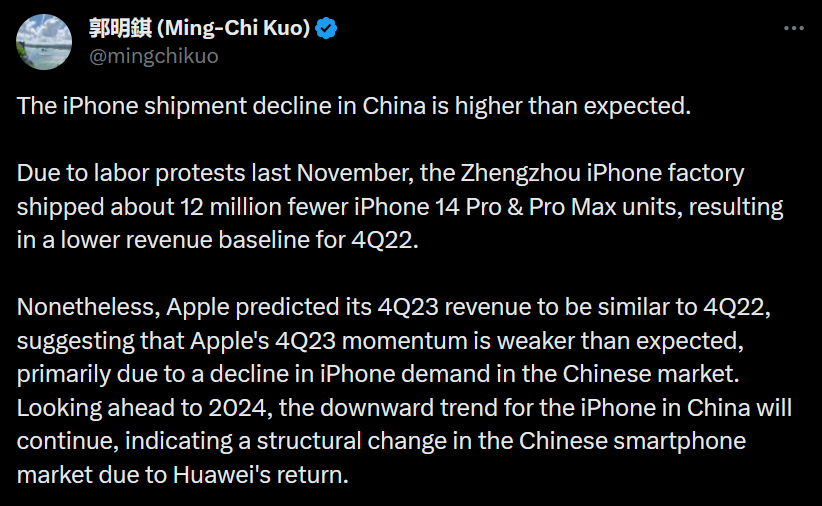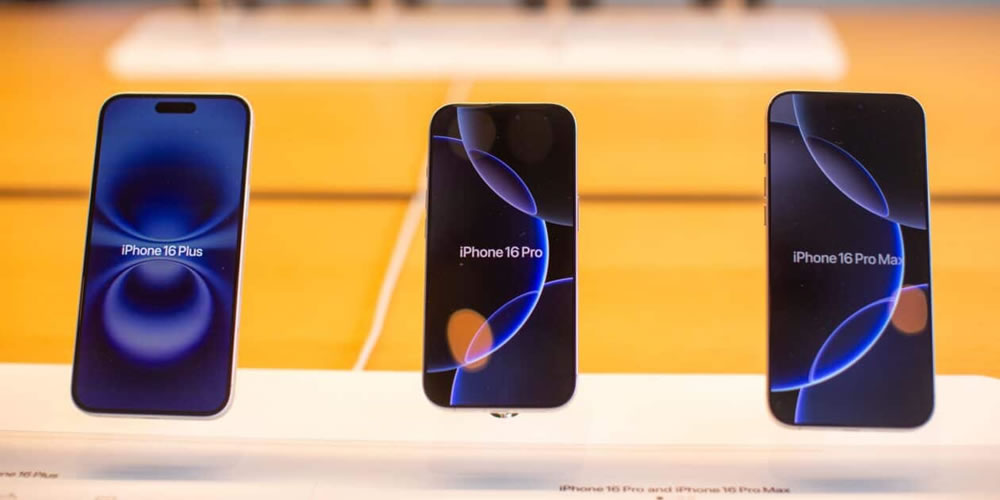Ming-Chi Kuo, the prominent analyst, has cast a shadow over Apple’s future and its flagship product, the iPhone, in China. He predicts a further decline in demand within the Chinese market, raising concerns for the tech giant. This article explores the factors contributing to this downturn and Apple’s possible response to these challenges.
Unrest in Zhengzhou: Impact on iPhone Production
In November of the past year, the Zhengzhou production facility in China experienced worker protests, which disrupted the assembly line and caused a significant reduction in the shipment of approximately 12 million iPhone 14 Pro and Pro Max units. As a result, this incident had a direct impact on Apple’s revenue in the fourth quarter of 2022, which fell below expectations. Ming-Chi Kuo now asserts that this trend is likely to persist into the fourth quarter of 2023, hinting at more gloomy prospects for iPhone sales in China.
Lackluster Momentum in China
Ming-Chi Kuo elucidated the underlying reasons for Apple’s declining performance in China, stating, “Apple’s momentum in the Chinese market is weaker than anticipated. The downward trajectory of the iPhone in China will persist. Huawei’s strong resurgence has led to structural shifts in the Chinese market.” Huawei’s resurgence in the market poses a considerable challenge for Apple, especially given the ongoing geopolitical tensions between China and the United States.
Beyond iPhones: A Downturn in iPad and Mac Sales
Apple faces difficulties in iPhone, iPad, and Mac sales. To address this, they’re considering launching more affordable MacBook models. According to Naver, a Korean blog site, this move could boost sales. Ming-Chi Kuo also supports this strategy, revealing Apple’s aim to enhance MacBook shipments and sales with cost-effective models.
Affordable MacBook Models: An Attempt to Revive Sales
The reports circulating on Weibo, a popular Chinese social media platform, indicate that the purported inexpensive MacBook models will cater to students and those seeking more budget-friendly options. Two models, with 12 and 13-inch displays, are expected to hit the market. These devices may be priced at less than $700, a competitive move to attract price-conscious consumers.

A Market Response: Chromebook Competitors
The challenge of providing value-for-money options in a competitive market is not new. Google’s Chromebook, a high-performance yet affordable laptop, has made waves in the industry. Ming-Chi Kuo’s earlier assertion is substantiated by a DigiTimes report, which mentioned Apple’s intentions to launch budget-friendly MacBook models in late 2024. These reports highlight the potential for Apple’s cheaper models to compete with Google’s Chromebook.
The Future of Affordable MacBooks
While various sources seem to echo each other’s claims, the introduction of cost-effective MacBook models by Apple remains to be seen. Their arrival will likely shape the budget laptop market in the coming months. This strategy is essential for Apple to navigate through a market landscape where cost-effectiveness is increasingly crucial.
In conclusion, Apple confronts challenges in iPhone, iPad, and Mac sales in China. The possible launch of budget MacBook models reveals Apple’s determination to adapt and recover. Finally, time will determine the success of these strategic efforts in the tech industry’s dynamic landscape.



















